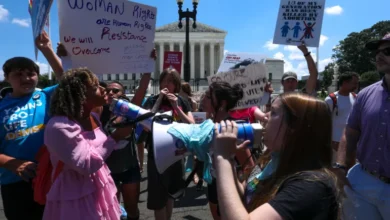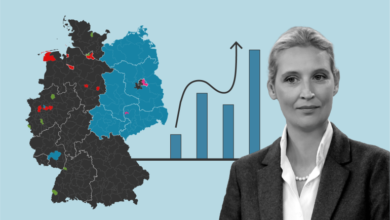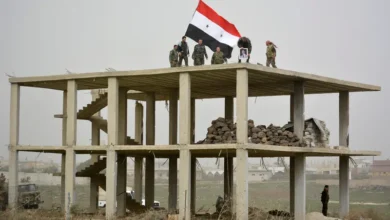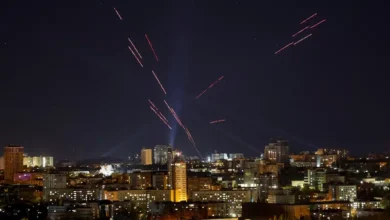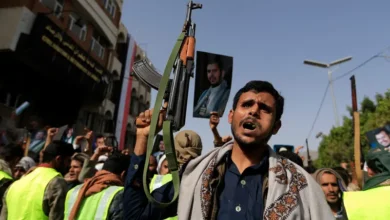Remembering Aysenur, an activist for Palestine killed by an Israeli soldier
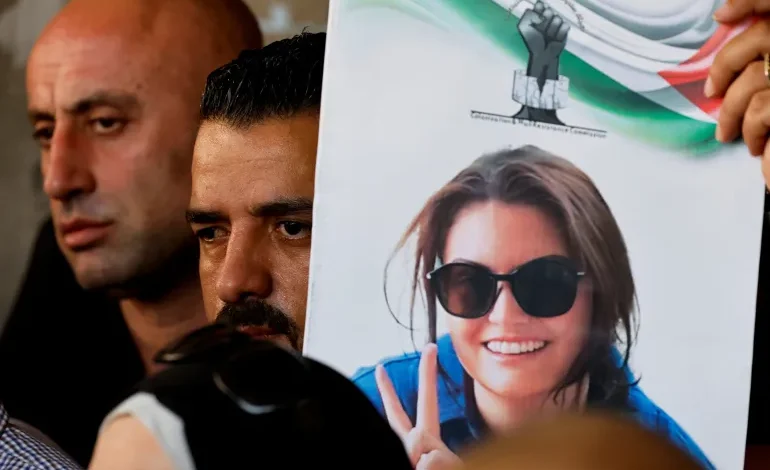
Aysenur Ezgi Eygi’s parents want her to be buried in Didim, Turkey, where the young Turkish-American woman was born.
The 26-year-old activist for Palestine was shot dead by Israeli troops last Friday while protesting against illegal Israeli settlements in Beita, south of Nablus in the occupied West Bank.
Turkish officials worked for days to secure the repatriation of Aysenur’s body for a burial planned on Friday.
Aysenur, a recent graduate of the University of Washington in Seattle, in the United States, was protesting against an Israeli settlement in nearby Evyatar when she was shot in the head.
Grief welled for the young activist and a huge funeral procession was held for her in Nablus on Tuesday.
Senior members of the Palestine Authority (PA) escorted her body, draped in a Palestinian flag and keffiyeh, through the town before it was carried away by a Palestinian ambulance.
‘Old soul’
Sam Chesneau, a co-founder and director of the Seattle-based American-Muslim organisation Wasat, of which Aysenur had been a member, described her as “an old soul, wise beyond her years, a truly caring person and profound thinker” who had “a tremendous sense of humour”.
“The world mourns her because we all recognise the best potential of ourselves in her,” Chesneau said.
“She reminds us to make peace with death and, rather, fear a life of apathy, of choosing safety at the expense of our beliefs and our humanity.”
From Aysenur’s family’s home in Didum, her aunt Gulay Yeniceoglu told local media the young activist was “a very compassionate person and could not turn a blind eye to injustice”.
Aysenur was killed during a peaceful protest against the illegal settlement in Eyvatar, established on Palestinian land in the West Bank in 2013.
‘She was smiling’
Witnesses to Aysenur’s killing have also contradicted Israeli claims that her death was accidental.
Among them was Italian activist “Mariam” who rode with Aysenur in the ambulance as she was transferred to Beita and then to Nablus, where she was pronounced dead.
Mariam said: “We were clearly visible to the army, there was nothing happening next to us … it was a shoot to kill.”
While she had just met Aysenur when they arrived in Palestine, Mariam said about her: “She was a kind person … she was ready to be here, in the field, in support of the Palestinian struggle. She was smiling, she prayed when we were in the garden.”
A friend of Aysenur’s, who had arrived in the occupied West Bank for the first time three days before the killing, told the online title +972 that the protest at Beita was her and Aysenur’s first.
“We were brand new,” the friend, who gave her name as EN, said. “She was aware of the risks; she had a clearer picture than me about the situation in different parts of the West Bank … from talking to people and researching and knowing people that experienced tragedies.
“But it is still hard to grasp if you haven’t spent a lot of time here,” EN continued.




